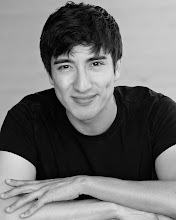 Childsplay's Academy Conservatory class is back in session for the spring semester and I am very excited to be working with an incredible group of students.
Childsplay's Academy Conservatory class is back in session for the spring semester and I am very excited to be working with an incredible group of students.This semester I will be focusing on styles of theatre from realism and naturalism to more anti-realism theatre including expressionism and Theatre of the Absurd suited to this group of student's age and level of experience. My goal is to not only introduce the students to various styles of theatre, but to create an entirely new piece of drama that incorporates elements from the styles learned in class.
Last semester students in Conservatory 2A had the privilege of working with Yolanda on self-exploration and improvisation as they devised a piece based on very personal experiences and views. This semester I want to continue that process and also add the element of theatrical style to the work.
After evaluating the student's level of work so far, I am excited at how ready they are to take on this challenge. This course will require a great amount of work from the students and a willingness to step out of the box as they expand their creativity and take their performance skills to a new level.





